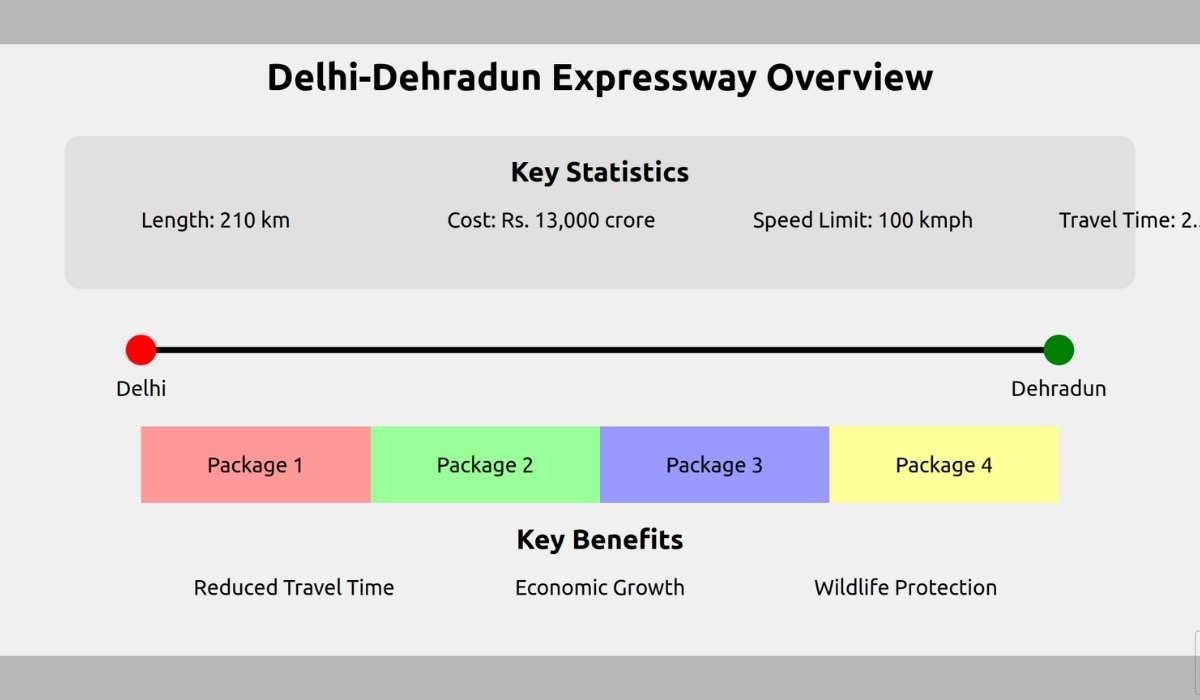Buying a home for the first time is a significant step, especially in India’s diverse and dynamic market. To make informed decisions and avoid common pitfalls, it’s crucial to understand every aspect of the process. This guide provides valuable tips, steps, and information about loans and government programs for first-time home buyers in India.
Understanding the Indian Real Estate Market
Current Trends in Indian Real Estate
The Indian real estate market is undergoing significant changes due to increasing urbanization and infrastructure development. Key trends include:
- Major cities like Mumbai, Delhi, Bangalore, and Hyderabad have the highest demand and prices. Smaller cities such as Pune, Ahmedabad, and Jaipur are becoming popular due to affordable housing and job opportunities.
- Many buyers are opting for suburban areas for affordability and better infrastructure.
- The COVID-19 pandemic has shifted buyer preferences towards larger homes with space for home offices and a focus on hygiene and safety.
Table 1: Average Prices and Growth in Major Cities
| City | Average Price per sq ft (INR) | Growth (%) YoY |
|---|---|---|
| Mumbai | 20,475 | 6% |
| Bangalore | 5,689 | 4% |
| Hyderabad | 6,479 | 7% |
| Noida | 4,500 | 3% |
| Pune | 5,219 | 5% |
Real Estate Regulations in India
Understanding real estate regulations is crucial for first-time home buyers. The Real Estate (Regulation and Development) Act, 2016 (RERA) provides protection by ensuring transparency and fairness in transactions.
- RERA mandates that all projects and real estate agents be registered with the state RERA, helping buyers verify the authenticity of properties and avoid scams.
- Ensure the property is RERA-registered, check the developer’s reputation, and review all legal documents before buying.
“RERA has given home buyers the power to make sure their investments are safe. It brings much-needed transparency and trust to the Indian real estate sector.” – Rajeev Talwar, CEO, DLF Ltd.
First-Time Home Buyer Tips in India

Assessing Financial Readiness
Before starting your home search, assess your financial readiness. This helps in setting a realistic budget and securing a home loan.
- Evaluate your income, expenses, savings, and debts. Use a personal budget calculator for a clear picture. Ensure your income is stable and can comfortably cover monthly loan payments.
Tip: Use the 28/36 rule – spend no more than 28% of your monthly income on housing costs and no more than 36% on total debt payments.
Unlock Your Dream Home Today!
Get personalized real estate insights delivered straight to your inbox.
- Your credit score significantly impacts your ability to get a home loan with favorable terms and interest rates.
Steps to Improve Your Credit Score:
- Pay bills on time
- Reduce debt
- Avoid new credit
- Check your credit report for errors
- Save as much as possible for the down payment, typically 10% to 20% of the property’s value. The more you pay upfront, the less you’ll need to borrow.
Table 2: Down Payment Examples
| Property Value (INR) | Down Payment (10%) | Down Payment (20%) |
|---|---|---|
| 50,00,000 | 5,00,000 | 10,00,000 |
| 75,00,000 | 7,50,000 | 15,00,000 |
| 1,00,00,000 | 10,00,000 | 20,00,000 |
Choosing the Right Location
Location is crucial as it impacts your property’s value and quality of life.
Factors to Consider:
- Proximity to work
- Good schools nearby
- Access to public transport
- Future development plans
Research upcoming infrastructure projects like metro lines, highways, and shopping centers, which can increase property prices in the future.
Understanding Different Property Types
Choosing the right type of property that fits your needs and budget is essential.
Apartments vs. Independent Houses:
- Apartments often have amenities like gyms, pools, and security, making them easier to maintain and suitable for community living.
- Independent houses offer more privacy and space, with greater potential for value appreciation over time.
Under-Construction vs. Ready-to-Move-In Properties:
- Under-construction properties are generally cheaper and may offer higher returns if bought early but carry risks of delays.
- Ready-to-move-in properties provide immediate possession and no construction delays but are often slightly more expensive.
Case Study:
Ravi chose an under-construction apartment in a fast-growing suburb of Bangalore. Five years later, the property’s value increased by 35%, and the area developed significantly with new malls, schools, and metro connectivity.
Due Diligence Before Buying
Thorough research and checks ensure your investment is safe and free from future problems.
- Inspect the property to assess construction quality, amenities, and adherence to promised plans. Look for any damage, broken fixtures, and overall maintenance.
- Ensure the property has a clear title with no legal issues. Important documents include:
- Sale Deed
- Mother Deed
- Encumbrance Certificate
- Approval Plans
- Completion Certificate
- Get the property valued by a professional to ensure you’re paying a fair price. This also helps in negotiating and obtaining a home loan.
Steps to Buying a Home in India
Buying a home in India involves several steps, from loan pre-approval to finalizing the purchase. Knowing these steps helps first-time home buyers navigate the complexities.
Pre-Approval for Home Loans
Getting pre-approved for a home loan is a smart move. It gives you a clear idea of your budget and demonstrates to sellers that you’re a serious buyer.
- A pre-approved loan means a bank or financial institution has initially agreed to lend you a certain amount based on your financial profile. This gives you an advantage in negotiations and speeds up the buying process.
Documents Required for Pre-Approval:
- Identity Proof
- Address Proof
- Income Proof
- Bank Statements
- Property Documents (if selected)
Finding a Real Estate Agent
While you can buy a home on your own, hiring a real estate agent can simplify the process.
Benefits of Hiring a Real Estate Agent:
- Market Knowledge
- Negotiation Skills
- Documentation Assistance
- Access to Listings
Tips to Choose the Right Realtor:
- Check credentials
- Review experience
- Read reviews
- Evaluate communication skills
Making an Offer
Once you’ve found the right property, the next step is making a strong offer. This involves balancing firmness with diplomacy.
How to Make a Competitive Offer:
- Study recent sales of similar properties in the area to make a competitive offer.
- Start with a slightly lower offer, leaving room to negotiate.
- Sometimes, a personal note explaining why you love the property can make your offer more appealing to the seller.
Negotiation Tips for First-Time Buyers:
- Stay informed about the property and the market.
- Be ready to walk away. Sellers may be more flexible if they think they might lose you.
- Instead of focusing only on price, negotiate for other benefits like included appliances, repairs, or closing cost assistance.
Home Inspection and Finalizing the Deal
The final steps involve carefully inspecting the property and completing the purchase agreements.
What to Look for During Home Inspections:
- Structural integrity
- Plumbing and electrical systems
- Safety standards
- Pest infestation
Finalizing the Purchase Agreement:
- Agreed purchase price
- Any conditions (like final approval of the home loan)
- Closing date
- List of included fixtures and appliances
Closing Costs and Other Expenses:
- Stamp Duty and Registration Fees: Around 7-8% of property value (varies by state)
- Legal Fees
- Home Loan Processing Fees
- Miscellaneous Expenses (property valuation, notarization, brokerage fees)
“The process of buying a home is so complex that having a checklist and getting professional help can make all the difference. A buyer’s journey should be as smooth and transparent as possible.” – Arvind Hiranandani, Real Estate Expert.
First-Time Home Buyer Loans in India
Getting a home loan is often a crucial part of the home-buying process. Knowing the types of loans, eligibility criteria, and the application process helps first-time home buyers in India make informed choices.
Types of Home Loans Available
The Indian banking sector offers various home loan options to suit different needs:
- Fixed-Rate Home Loans: The interest rate stays the same throughout the loan tenure, offering stability and predictable monthly payments.
- Floating-Rate Home Loans: The interest rate changes based on market conditions and RBI lending rates. These can be advantageous when rates are falling but also carry the risk of rate increases.
- Home Construction Loans: Designed for those who want to build a home on an existing plot. The amount is disbursed in phases based on construction progress.
- Home Renovation Loans: Provide funds specifically for renovating or expanding your current home.
- Top-Up Loans: Existing home loan borrowers can get additional funds over and above their current loan.
Did You Know? Some banks offer special loans for women with lower interest rates and additional benefits.
Eligibility Criteria for Home Loans
Understanding the eligibility criteria is important for a smooth loan application process. Most banks consider the following factors:
Table 3: Home Loan Eligibility Criteria
| Eligibility Factor | Minimum Requirement |
|---|---|
| Age | 21-65 years |
| Credit Score | 700+ |
| Income | Stable and sufficient for EMI payments |
Home Loan Application Process
The application process may seem overwhelming, but following these steps can simplify it:
- Gather required documents
- Choose a lender
- Submit application
- Loan evaluation
- Loan approval
- Property verification and legal check
- Disbursement
Tips for First-Time Home Loan Applicants
- Compare offers from different lenders
- Read and understand all loan terms and conditions
- Maintain a good credit score
- Seek professional financial advice
Case Study:
Sunita, a first-time home buyer in Pune, was overwhelmed by the home loan options. After consulting a financial advisor, she chose a floating-rate loan with lower initial rates. She also maintained a high credit score, ensuring she got the best terms from her lender.
First-Time Home Buyer Government Schemes in India
The Indian government has launched several schemes to make home buying more affordable and accessible for first-time buyers.
Pradhan Mantri Awas Yojana (PMAY)
The Pradhan Mantri Awas Yojana (PMAY) is the main affordable housing scheme aimed at providing homes to all Indian citizens.
Overview of PMAY:
- Launched in 2015
- Aims to achieve “Housing for All” by 2022
- Divided into PMAY – Urban and PMAY – Rural
Eligibility Criteria and Benefits:
Table 4: PMAY Subsidy Details
| Income Group | Annual Income | Interest Subsidy |
|---|---|---|
| EWS/LIG | Up to INR 6 lakh | 6.5% |
| MIG-I | INR 6-12 lakh | 4% |
| MIG-II | INR 12-18 lakh | 3% |
Did You Know? Under PMAY, women are encouraged to be sole or joint owners of the property.
Other Government Housing Schemes
Several states offer specific schemes tailored to assist first-time home buyers.
Table 5: State-Specific Schemes
| State | Scheme Name | Target Audience |
|---|---|---|
| Delhi | DDA Housing Scheme | Middle-income, Low-income groups |
| Tamil Nadu | TNHB Housing Scheme | Affordable flats and plots for all |
| Maharashtra | MHADA Housing Scheme | Low and middle-income groups |
Subsidies and Incentives for First-Time Buyers
Beyond loans and housing schemes, various subsidies and incentives are available to first-time buyers in India.
- Interest Subsidies under PMAY
- Tax Benefits:
- Section 80C: Deduction up to INR 1.5 lakh on principal repayment
- Section 24(b): Deduction up to INR 2 lakh on home loan interest
- Stamp Duty Concessions for women, senior citizens, and other special categories
Example:
- If you’re in Delhi and qualify under PMAY-Urban, combined with tax benefits under Section 80C and 24(b), your overall savings can be significant.
Case Study:
Manoj, a first-time home buyer from Pune, used the PMAY scheme and received an interest subsidy which significantly reduced his EMI. He also utilized tax benefits under Section 24(b), saving up to INR 2 lakh per year on interest payments, making the overall purchase more affordable.
Post-Purchase Considerations for First-Time Buyers
Buying a home is a significant achievement, but the journey doesn’t end with the purchase. There are several things first-time home buyers in India need to consider after buying to ensure a smooth transition and proper property maintenance.
Understanding Property Taxes and Maintenance Costs
Owning a home comes with ongoing financial responsibilities. Understanding these costs helps in effective budgeting and financial planning.
Property Taxes:
- Annual charges based on the property’s value, size, and location
- Ranges from 0.10% to 2.00% of the property’s annual rental value or appraised value
Table 6: Property Tax Examples
| Property Value (INR) | Annual Property Tax Rate (%) | Annual Property Tax (INR) |
|---|---|---|
| 50,00,000 | 1.5% | 75,000 |
| 75,00,000 | 1.0% | 75,000 |
| 1,00,00,000 | 0.75% | 75,000 |
Maintenance Costs:
- Annual Maintenance Contracts (AMC) for utilities
- Society Maintenance Charges for amenities and upkeep
- Occasional Repairs and Renovations
“Neglecting maintenance can lead to big problems later on. Regular upkeep not only maintains the property’s value but also ensures a safe and comfortable living environment.” – Anuj Puri, Chairman, Anarock Group.
Home Insurance: Importance and Types
Home insurance is a financial safety net that protects your investment and provides peace of mind.
Types of Home Insurance Available in India:
- Standard Fire and Special Perils Policy
- Home Structure Insurance
- Home Contents Insurance
- Personal Accident (add-ons)
Did You Know? You can often get a comprehensive policy combining both home structure and home contents insurance for better coverage.
Settling Into Your New Home
Moving into a new home is exciting but comes with tasks to ensure a smooth transition.
Checklist for New Homeowners:
- Connect utilities
- Implement safety measures
- Test appliances
- Set up home décor
- Update local registrations
Tips for Moving In Smoothly:
- Declutter before moving
- Hire professional movers
- Unpack essentials first
Case Study:
Ramesh and Priya faced a chaotic move into their first apartment in Mumbai. After hiring movers and following a structured unpacking plan, they settled in comfortably within a week. They also obtained a comprehensive home insurance policy for peace of mind.
Conclusion
Navigating the Indian real estate market as a first-time home buyer can be both exciting and challenging. By equipping yourself with the right information—from assessing financial readiness to understanding loans, government schemes, and post-purchase responsibilities—you can make well-informed decisions that will benefit you in the long run. Remember, buying a home is not just a financial investment; it’s about creating a safe and comfortable space for you and your family.
FAQs
What are common mistakes first-time home buyers make?
- Failing to budget properly
- Neglecting due diligence
- Overlooking additional costs
- Choosing the wrong property type
- Ignoring future resale value
How much down payment is typically required?
Most lenders require a down payment of 10-20% of the property’s value. A larger down payment can lower your loan amount and improve your interest rates.
Can NRIs buy property in India?
Yes, Non-Resident Indians (NRIs) can buy both residential and commercial properties in India. However, they cannot purchase agricultural land, plantation property, or a farmhouse.
Get Personalized Advice Now!
Starting your first home buying journey? It’s normal to have many questions and need personalized guidance. Consult with experienced real estate professionals who can help you make informed decisions.
The key steps include assessing financial readiness, obtaining pre-approval for home loans, researching locations, finding a suitable property, making an offer, conducting home inspections, and finalizing the purchase agreement.
You should evaluate your income, expenses, savings, and debts. It's important to ensure your income is stable and can comfortably cover monthly loan payments.
The Real Estate (Regulation and Development) Act, 2016 (RERA) provides protection for buyers by ensuring transparency and fairness in real estate transactions. It mandates that all projects and agents be registered, helping buyers verify property authenticity.
The main types include fixed-rate home loans, floating-rate home loans, home construction loans, home renovation loans, and top-up loans for existing borrowers.
PMAY provides interest subsidies to eligible buyers, making home ownership more affordable. The scheme aims to achieve 'Housing for All' and is divided into urban and rural categories.
Consider proximity to work, availability of good schools, access to public transport, and future development plans that can impact property value.
Common mistakes include failing to budget properly, neglecting due diligence, overlooking additional costs, choosing the wrong property type, and ignoring future resale value.
Most lenders require a down payment of 10-20% of the property's value. A larger down payment can lower your loan amount and improve your interest rates.
Yes, Non-Resident Indians (NRIs) can buy both residential and commercial properties in India, but they cannot purchase agricultural land, plantation property, or farmhouses.
Homeowners should budget for property taxes, maintenance costs, utilities, and potential repairs. Understanding these costs is crucial for effective financial planning.
DISCLAIMER
The information provided on this website is for general informational purposes only. While we strive to keep the content up-to-date and accurate, we make no representations or warranties of any kind, express or implied, about the completeness, accuracy, reliability, suitability, or availability of the information, products, services, or related graphics contained on this website.
In no event will we be liable for any loss or damage including without limitation, indirect or consequential loss or damage, or any loss or damage whatsoever arising from loss of data or profits arising out of, or in connection with, the use of this website.
Real Estate Investment Risks
Real estate investments involve significant risks and market volatility. Property values, rental rates, and market conditions can fluctuate. Past performance is not indicative of future results.
Before Making Real Estate Decisions
Before making any real estate decision, we strongly advise you to:
- Conduct thorough due diligence
- Consult with qualified legal, financial, and real estate professionals
- Carefully review all relevant documents and contracts
- Consider your personal financial situation and investment goals
This website does not provide legal, financial, or investment advice. All content is for informational purposes only and should not be construed as professional advice or recommendations.
By using this website, you acknowledge and agree to these terms. We reserve the right to modify this disclaimer at any time without notice.







